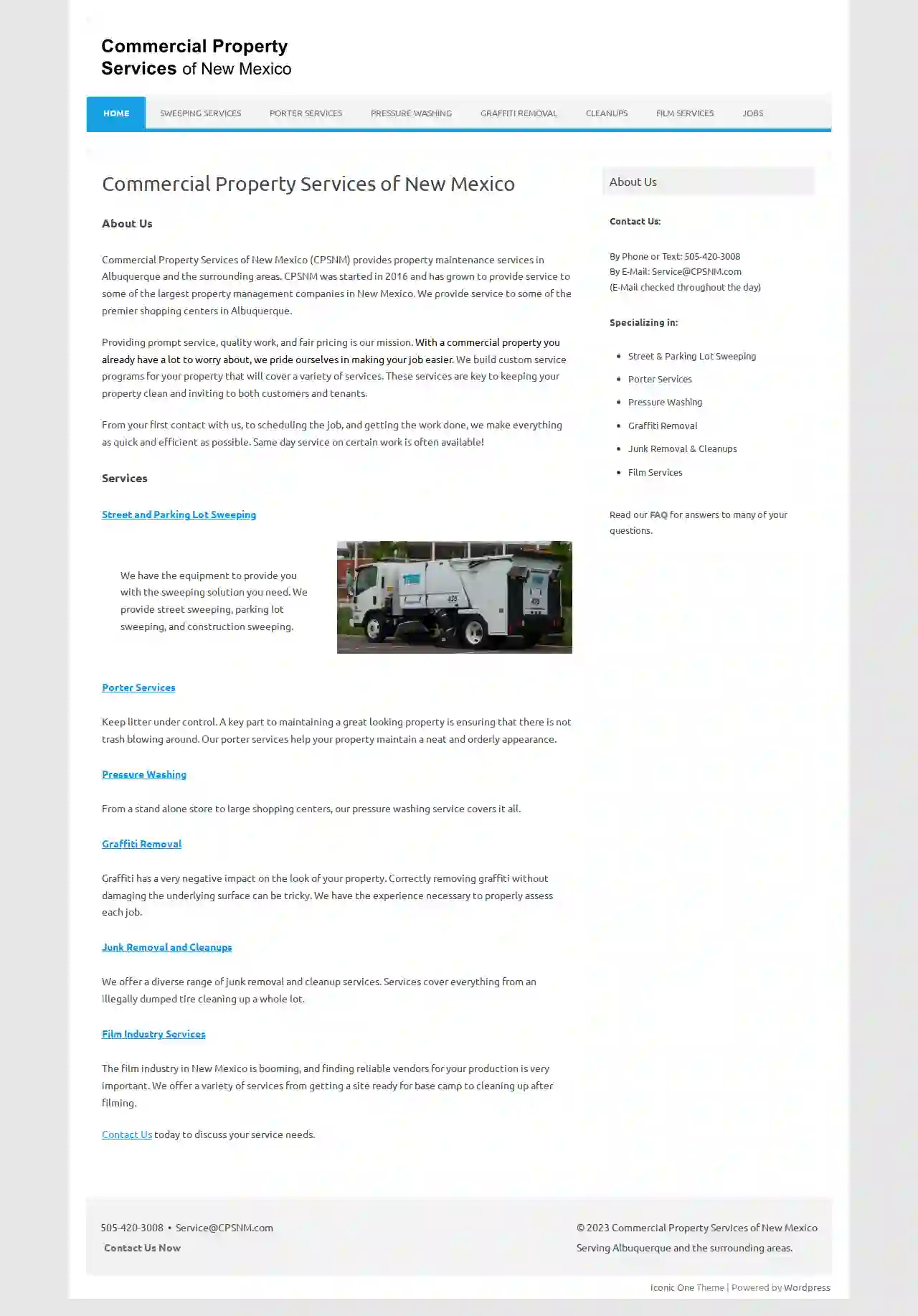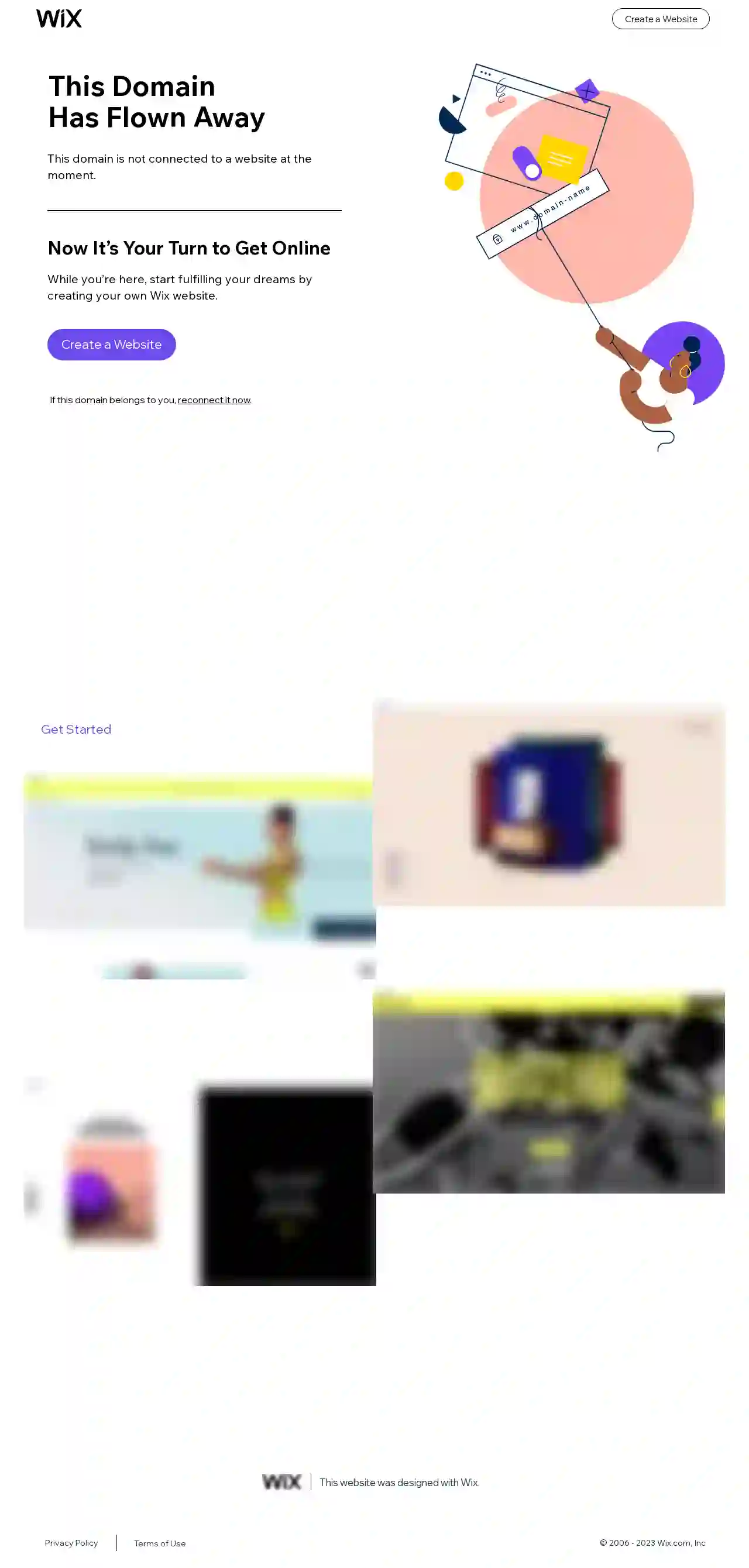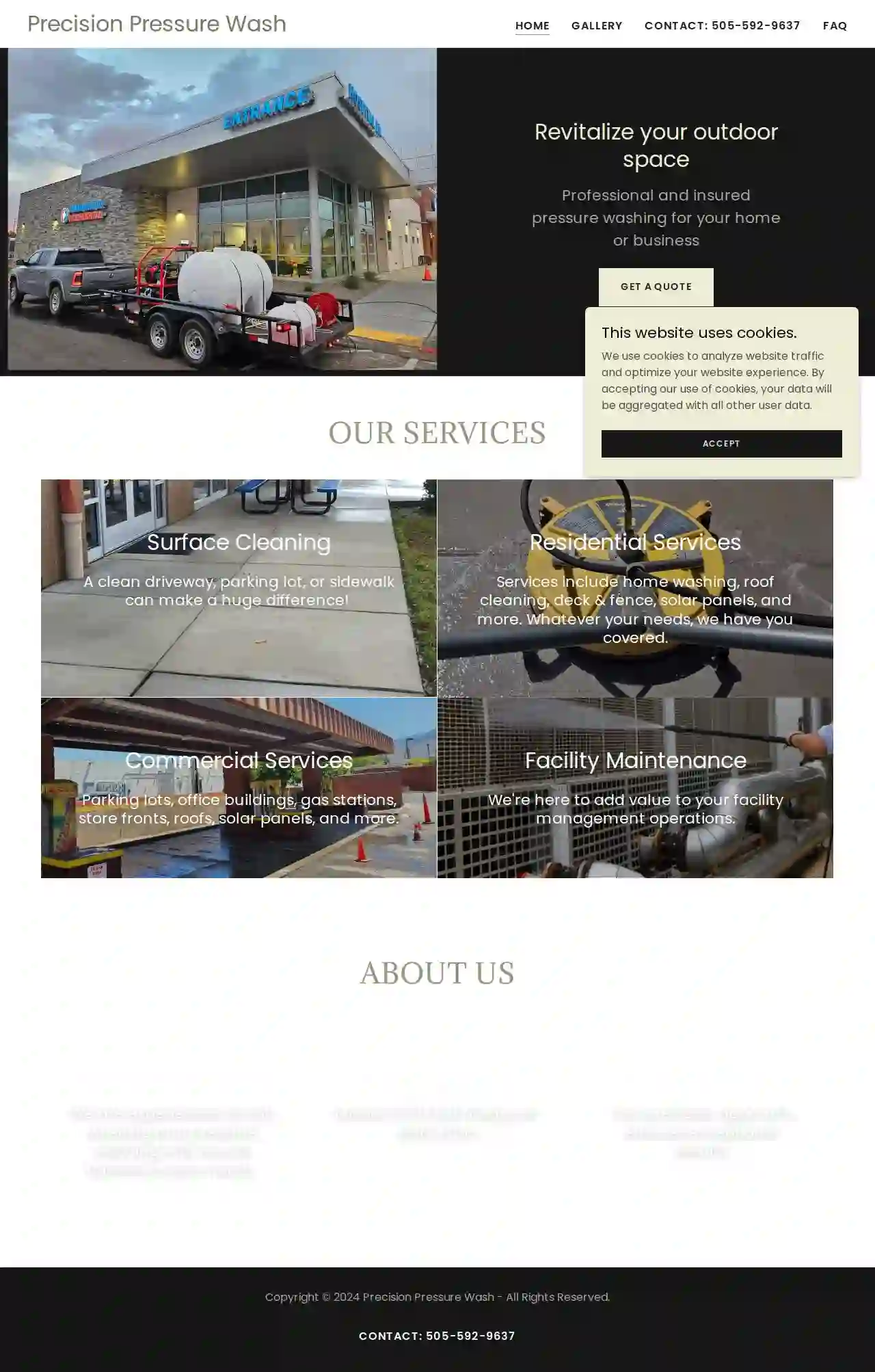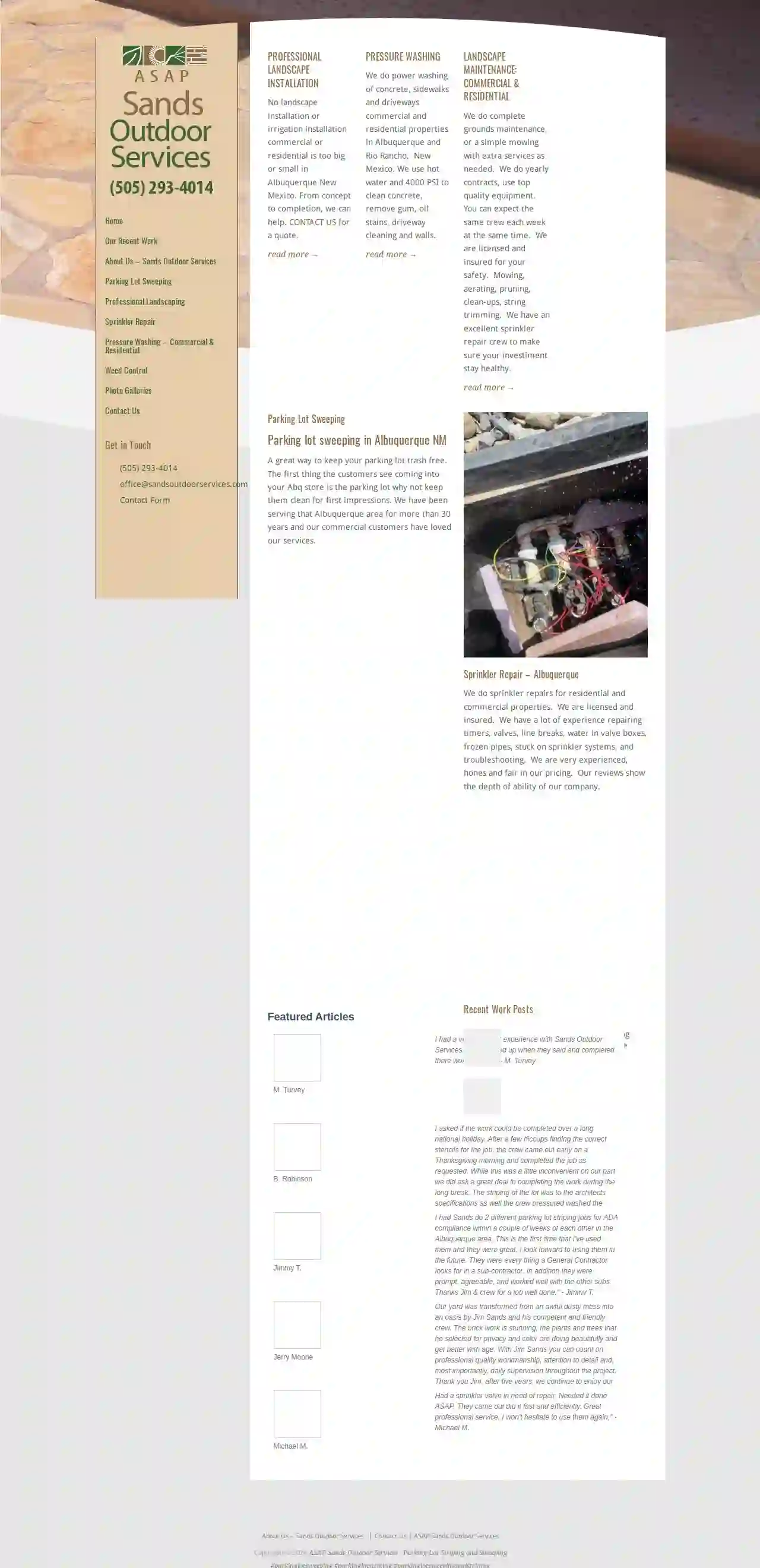Pressure Washing Las Vegas
Top Exterior Cleaning in Las Vegas
Get multiple Pressure Washing quotes for your project today! Compare profiles, reviews, accreditations, portfolio, etc... and choose the best deal.

Octavio's Painting Company
4.452 reviewsAlbuquerque, NM, 6300 2nd St. NW, 87107, USOctavio's Painting is a locally owned painting company that provides quality craftsmanship and attention to detail. We offer complete painting services for residential and commercial home and business owners. Our services include exterior work on stucco and deck, as well as interior work to drywall, woodwork, and flooring. We use the highest quality paints, stains, and materials, applied by professional painters you can trust. With over 10 years of experience in Albuquerque, NM and the surrounding area, our painting company has built a strong reputation based on our timely, dependable, and thorough painting services.
- Services
- Why Us?
- Accreditations
- Our Team
- Testimonials
- Gallery
Get Quote
Commercial Property Services of New Mexico
51 reviewsAlbuquerque, USCommercial Property Services of New Mexico (CPSNM) provides property maintenance services in Albuquerque and the surrounding areas. CPSNM was started in 2016 and has grown to provide service to some of the largest property management companies in New Mexico. We provide service to some of the premier shopping centers in Albuquerque. Providing prompt service, quality work, and fair pricing is our mission. With a commercial property you already have a lot to worry about, we pride ourselves in making your job easier. We build custom service programs for your property that will cover a variety of services. These services are key to keeping your property clean and inviting to both customers and tenants. From your first contact with us, to scheduling the job, and getting the work done, we make everything as quick and efficient as possible. Same day service on certain work is often available!
- Services
- Why Us?
- Gallery
Get Quote
ABQPOWERWASHING.com
51 reviewsAlbuquerque, USThis domain is not connected to a website at the moment.
- Services
- Why Us?
- Gallery
Get Quote
Fleet Clean - Albuquerque
Albuquerque, USFleet Clean is a premier provider of on-site mobile truck washing services, offering unparalleled convenience and quality to fleet owners nationwide. With a commitment to excellence, Fleet Clean sets the industry standard for efficient and sustainable vehicle cleaning solutions. Our approach to mobile truck washing programs provides customized services tailored to each client's unique needs. With meticulous attention to detail and a dedication to customer satisfaction, Fleet Clean delivers exceptional results. As a national franchise mobile truck washing company, our mission is clear: to prioritize your needs, maintain the utmost structural integrity, and provide unparalleled quality and customer service. With confidence and dedication, we deliver excellence in mobile truck washing. Discover the difference with Fleet Clean today.
- Services
- Why Us?
- Gallery
Get Quote
Precision Pressure Wash
54 reviews10000 Central Ave NE, Ste 100, Albuquerque, 87108, USPrecision Pressure Wash is a veteran-owned and operated business dedicated to revitalizing your outdoor spaces. We offer professional and insured pressure washing services for both residential and commercial clients in Albuquerque, New Mexico. Our experienced team is committed to providing exceptional results with a meticulous approach, ensuring your complete satisfaction. We understand the importance of a clean and well-maintained exterior for your home or business. That's why we offer a wide range of services, including home washing, roof cleaning, deck and fence cleaning, solar panel cleaning, and more. Whether you need to remove dirt, grime, mold, mildew, or other unsightly buildup, we have the expertise and equipment to get the job done right. At Precision Pressure Wash, we prioritize customer satisfaction and strive to exceed expectations. We are committed to providing reliable, efficient, and environmentally responsible services. Contact us today for a free estimate and let us help you transform your outdoor space.
- Services
- Why Us?
- Gallery
Get Quote
ABQ Power Sweeping, LLC
123 Main St, Suite 100, Albuquerque, 87102, USKeeping Albuquerque Beautiful for Over 20 Years. ABQ Power Sweeping helps you achieve exactly that, providing services to clean and maintain the outside of your property! Meeting your time and workplace demands, we operate to the highest standards, ensuring each job is completed on time and with little to no disruption to your business. We also recognize that the safety and convenience of your staff and guests is crucial, and work to safely and efficiently complete each project. With 20 years of experience and a passion for serving our community, trust ABQ Power Sweeping to upkeep your parking lot and streets!
- Services
- Why Us?
- Accreditations
- Our Team
- Testimonials
- Gallery
Get Quote
ASAP Sands Outdoor Services
4.624 reviewsAlbuquerque, USSands Outdoor Services is a top leader in sprinkler installation, sprinkler repair, and service of automatic sprinkler systems. We proudly maintain customers in Albuquerque, NM, and repair valves, broken lines, timer errors, backflow problems, wiring issues, locating leaks, and irrigation systems with wells. We also offer landscape installation, commercial and residential, with no job too small or too big. From concept to completion, we can help. Our services include parking lot striping, pressure washing, grounds maintenance, commercial and residential, and sprinkler repair. We are licensed and insured, with a team of well-trained employees and professional equipment. We strive to make you very satisfied with how your property looks.
- Services
- Why Us?
- Testimonials
- Gallery
Get Quote
Pro-Wash Solutions
RIO RANCHO, USAt Pro-Wash Solutions, we are your trusted source for top-notch exterior residential and commercial soft wash and pressure washing services. Experience the perfect blend of clean with our tailored solutions. We specialize in restoring the exterior beauty and cleanliness of your properties. Our team has the expertise needed to get the job done safely and correctly. We Increase Your Property Value, Taking advantage of our services is one of the fastest ways to get a return on your investment. According to the National Association of Realtors pressure washing your home can add between $10,000-$15,000 to your homes value. Additionally it adds the curb appeal you want. We are Licensed and Insured, Our company is fully licensed and insured. At Pro-Wash Solutions, we take pride in our unwavering commitment to excellence, and part of that commitment involves being fully licensed and insured. Our dedication to professionalism and adherence to industry standards set us apart.
- Services
- Why Us?
- Gallery
Get Quote
Pressure Washing Services of ABQ!
52 reviews123 Main Street, Albuquerque, 87104, USPressure washing services in and around Albuquerque, NM! Our Services Menu Call Us Now! Professional pressure washing in ABQ tailored to your needs Pressure washing Albuquerque is a proudly local business serving Albuquerque and surrounding areas. We are a professional power and pressure washing company with several decades of local experience. We work all year round, use the latest equipment and technology and are fully insured.Getting rid of grime, algae and dirt prolongs the life of all surfaces, equipment, buildings and structures, not to mention the aesthetic improvement that results from it. Our friendly and professional crew love what they do. They work efficiently, delivering great end results and all the while prioritizing your needs and safety above everything else.We are an environmentally responsible business. We use environment friendly detergent and only top-of-the-line, low emissions, efficient, fully mobile and self-sufficient industrial-grade equipment to serve you. We have rapidly grown over the past years to become one of the largest pressure washing service providers in and around Albuquerque. Our cutting-edge equipment, highly optimized processes and specially trained crew have afforded us hundreds of happy clients in the past. Allow us to serve you in a similar manner, we're very proud of our customer service track record and we can prove it to you.Call us today at (505) 295-0696 let us help improve the curb appeal of your home or business and make a stunning first impression on all. We are experts at power washing houses, decks, walkways, commercial buildings, parking lots and a lot more. We are experienced at removing graffiti, gum and other unwanted sediments that are common in high people-traffic and industrial activity areas. Call Us Now!
- Services
- Why Us?
- Gallery
Get Quote
Boyd Equipment
522 reviewsTucson, USBoyd Equipment is a small, family-owned business in the great state of Arizona. With vast knowledge and experience in the industry, our family jumped at the opportunity to purchase Boyd Equipment in 2009. At the time, it was just a small shop in Tucson with 4 employees. Since then, with the help of our amazing team, Boyd Equipment has grown into one of the largest service providers and suppliers of industrial cleaning equipment in Arizona. In 2017 we were fortunate enough to expand into the Phoenix valley, where we rented a small facility until 2022, when the growth allowed us to purchase our current location in Chandler. At Boyd Equipment we are proud to offer our customers the best brands on the market for pressure washers, parts washers, floor care, detergents and water treatment systems. We also take pride in having the top trained technicians in the industry, along with a knowledgeable sales team to make your cleaning equipment repairs or purchases a breeze. Stop in to either one of our locations, in Tucson & Phoenix, AZ and Albuquerque, NM to check out our showroom where we are proud to feature the most prominent products in the cleaning business. Don’t be afraid to bring us a little mud. We do dirty!
- Services
- Why Us?
- Accreditations
- Gallery
Get Quote
Over 60,241+ Janitorial Businesses on our platform
Our cleaning services operate in Las Vegas & surrounding areas!
CleaningMatch has curated and vetted the Best Cleaning Contractors near Las Vegas. Find a top & reliable business today.
Frequently Asked Questions About Pressure Washing
- Electric Pressure Washers: Suitable for light-duty cleaning tasks like washing cars, patios, or fences. They are less powerful than gas pressure washers but are generally more affordable and easier to operate.
- Gas Pressure Washers: More powerful than electric pressure washers, making them suitable for heavier cleaning tasks like removing stubborn stains, cleaning driveways, or stripping paint.
- PSI and GPM: Consider the PSI (Pounds per Square Inch) and GPM (Gallons per Minute) ratings. Higher PSI and GPM indicate a more powerful pressure washer. For most home cleaning tasks, a pressure washer with a PSI of 2000-3000 and a GPM of 2-3 is sufficient.
- Spring and Fall: Spring and fall are often ideal for pressure washing as the temperatures are moderate and the weather is typically dry.
- Summer: Pressure washing can be done in the summer, but avoid doing so during the hottest part of the day to prevent the cleaning solutions from drying too quickly and leaving streaks.
- Winter: Pressure washing is possible in the winter, but be mindful of freezing temperatures that can affect cleaning solutions and cause slippery surfaces.
- Annually: Pressure washing your house at least once a year helps remove accumulated dirt, grime, and other contaminants, keeping it looking its best.
- Every 2-3 Years: If you live in an area with high humidity, heavy tree cover, or frequent exposure to pollutants, more frequent pressure washing may be necessary.
- When Visible Dirt and Grime Appear: Address visible dirt, stains, or mold growth promptly to prevent them from becoming more challenging to remove.
- Using Excessive Pressure: High-pressure water spray can damage delicate surfaces like wood siding or painted surfaces.
- Using the Wrong Nozzle: Different nozzles produce different spray patterns and pressure levels. Using the wrong nozzle can cause streaks, uneven cleaning, or damage.
- Holding the Nozzle Too Close to the Surface: Holding the nozzle too close can etch or damage the surface. Maintain a safe distance as recommended by the pressure washer manufacturer.
- Skipping Pre-Treatment: For stubborn stains or mold growth, pre-treating the surface with a cleaning solution can enhance cleaning effectiveness.
- Not Protecting Plants and Landscaping: Pressure washing chemicals and debris can harm plants and landscaping. Cover or shield sensitive areas before pressure washing.
What type of pressure washer do I need for my home?
If you're unsure about the type of pressure washer best suited for your needs, consult with a pressure washing professional or a home improvement specialist.
What is the best time of year for pressure washing?
Choose a day with mild temperatures and dry weather for optimal pressure washing results. Avoid pressure washing in extreme heat, freezing temperatures, or rainy conditions.
How often should I pressure wash my house?
Regular pressure washing can maintain your home's exterior, extend the lifespan of your siding, and enhance its curb appeal.
What are some common pressure washing mistakes to avoid?
If you're unsure about pressure washing techniques or the appropriate pressure levels for your surfaces, consult with a professional pressure washing company.
What type of pressure washer do I need for my home?
- Electric Pressure Washers: Suitable for light-duty cleaning tasks like washing cars, patios, or fences. They are less powerful than gas pressure washers but are generally more affordable and easier to operate.
- Gas Pressure Washers: More powerful than electric pressure washers, making them suitable for heavier cleaning tasks like removing stubborn stains, cleaning driveways, or stripping paint.
- PSI and GPM: Consider the PSI (Pounds per Square Inch) and GPM (Gallons per Minute) ratings. Higher PSI and GPM indicate a more powerful pressure washer. For most home cleaning tasks, a pressure washer with a PSI of 2000-3000 and a GPM of 2-3 is sufficient.
If you're unsure about the type of pressure washer best suited for your needs, consult with a pressure washing professional or a home improvement specialist.
What is the best time of year for pressure washing?
- Spring and Fall: Spring and fall are often ideal for pressure washing as the temperatures are moderate and the weather is typically dry.
- Summer: Pressure washing can be done in the summer, but avoid doing so during the hottest part of the day to prevent the cleaning solutions from drying too quickly and leaving streaks.
- Winter: Pressure washing is possible in the winter, but be mindful of freezing temperatures that can affect cleaning solutions and cause slippery surfaces.
Choose a day with mild temperatures and dry weather for optimal pressure washing results. Avoid pressure washing in extreme heat, freezing temperatures, or rainy conditions.
How often should I pressure wash my house?
- Annually: Pressure washing your house at least once a year helps remove accumulated dirt, grime, and other contaminants, keeping it looking its best.
- Every 2-3 Years: If you live in an area with high humidity, heavy tree cover, or frequent exposure to pollutants, more frequent pressure washing may be necessary.
- When Visible Dirt and Grime Appear: Address visible dirt, stains, or mold growth promptly to prevent them from becoming more challenging to remove.
Regular pressure washing can maintain your home's exterior, extend the lifespan of your siding, and enhance its curb appeal.
What are some common pressure washing mistakes to avoid?
- Using Excessive Pressure: High-pressure water spray can damage delicate surfaces like wood siding or painted surfaces.
- Using the Wrong Nozzle: Different nozzles produce different spray patterns and pressure levels. Using the wrong nozzle can cause streaks, uneven cleaning, or damage.
- Holding the Nozzle Too Close to the Surface: Holding the nozzle too close can etch or damage the surface. Maintain a safe distance as recommended by the pressure washer manufacturer.
- Skipping Pre-Treatment: For stubborn stains or mold growth, pre-treating the surface with a cleaning solution can enhance cleaning effectiveness.
- Not Protecting Plants and Landscaping: Pressure washing chemicals and debris can harm plants and landscaping. Cover or shield sensitive areas before pressure washing.
If you're unsure about pressure washing techniques or the appropriate pressure levels for your surfaces, consult with a professional pressure washing company.